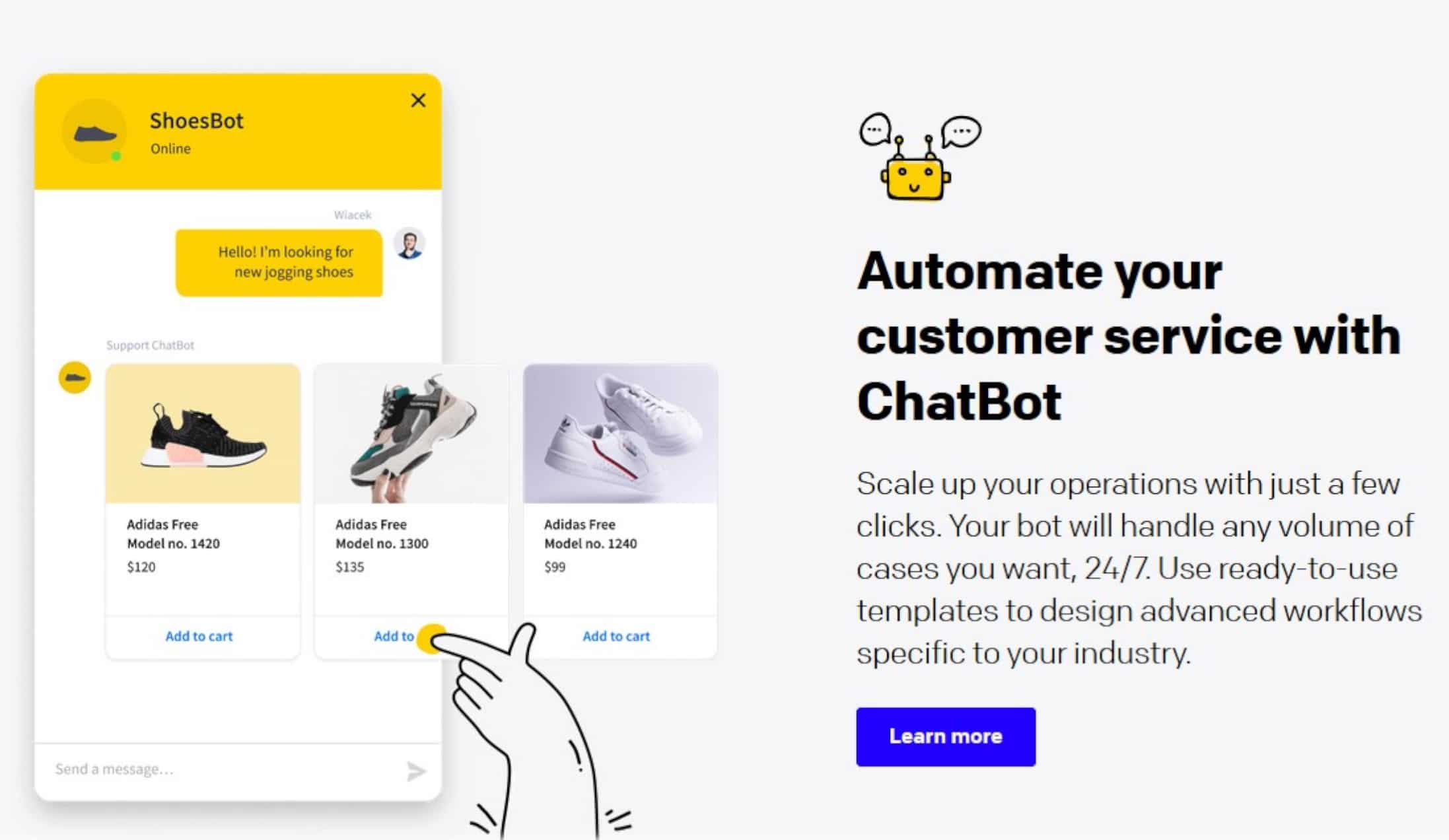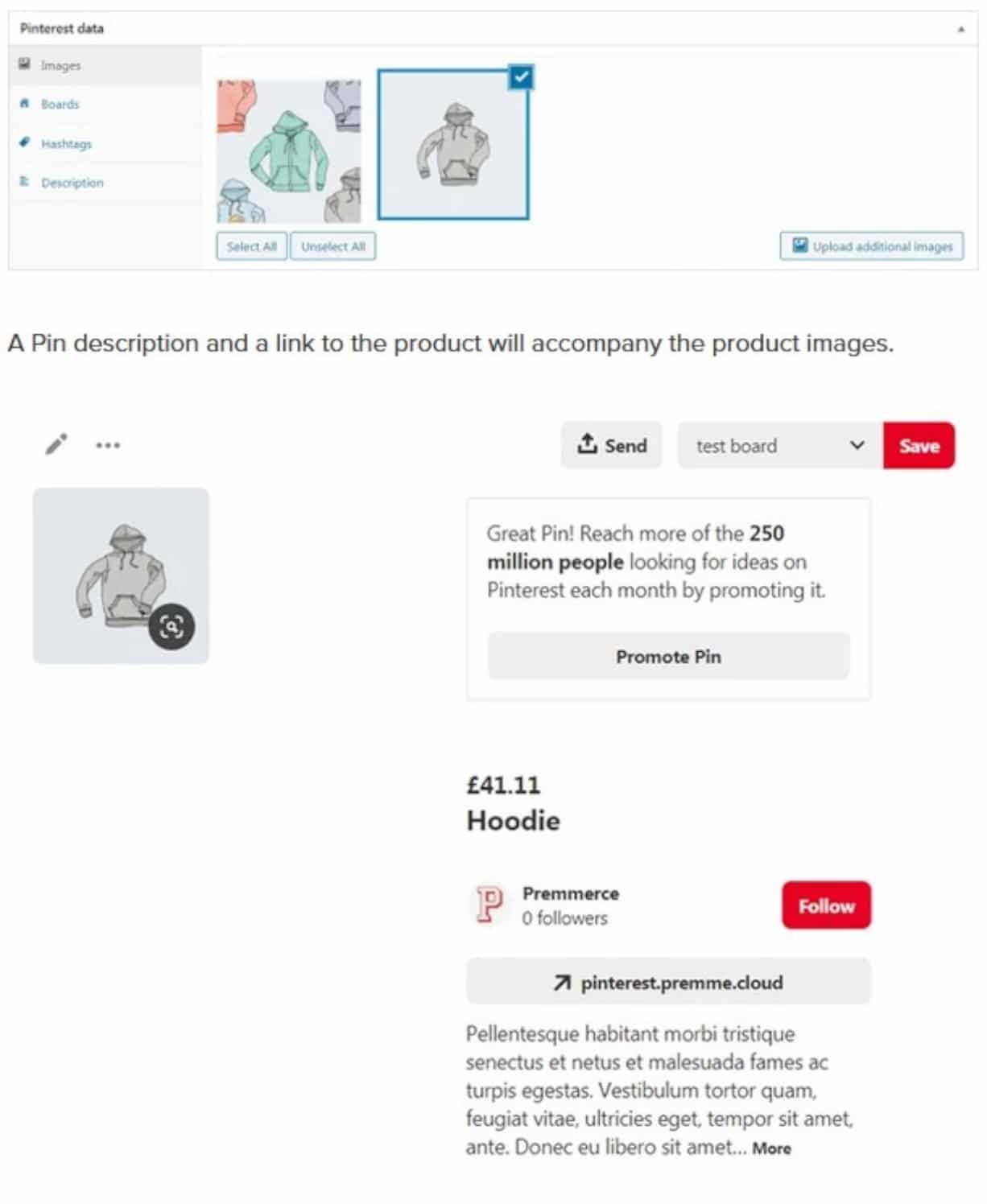WooCommerce is one of the leading platforms for ecommerce stores that use WordPress. If you know how to leverage their extensions, you can create a comprehensive, automated order fulfillment process.
WooCommerce is just the platform for building your store. You need extensions to automate shipping and sales tax services, among other things, and the best WooCommerce plugins can help you streamline your inventory and improve your customer’s experience.
What is WooCommerce?
WooCommerce is one of the most popular ecommerce platforms for online businesses built on WordPress. If you want a solution that you can customize, WooCommerce offers several features to create the perfect ecommerce store. The top features are:
- Open-source platform: WooCommerce is a modular open-source platform. That means you can customize every aspect of your store to build a truly unique ecommerce store. You also have complete control over how many customers, users, and the orders you want.
- WordPress security: as a leading content management system, WordPress powers over 34% of the websites on the internet, and it’s routinely audited by a third-party industry leader, Sucuri. That means your WooCommerce store has a foundation of trust.
- Plugin integration: the open-source nature of WooCommerce makes it a powerful platform for businesses that want to integrate their ecommerce store with other product and marketing solutions. Plugins, or extensions, are an integral part of customizing WooCommerce.
While WooCommerce was made for developers, it’s a practical solution for many small businesses that don’t have a full development team.
Note: Plugins and extensions are interchangeable in this blog. WooCommerce is a plugin for WordPress, but the additional functionality of the plugin is through extensions.
How do the best WooCommerce plugins and extensions work?
WooCommerce plugins and extensions offer the easiest solution for building a custom ecommerce store. In most cases, they’re relatively easy to incorporate into your online shop.
You can take advantage of WooCommerce extensions by following these three simple steps:
- Install the extension: You’ll do this from your WordPress Admin tool by navigating to the WooCommerce integrations and choosing the extension you want to install.
- Log in or create an account: If you don’t already have an account with the extension you’re installing, create an account to have access to all of the right features.
- Activate any services: At this point, you can set up any services or workflow integrations within WordPress and have access to the data in one place.
Depending on the level of service you choose, you might have access to additional support options to help you install and set up your extensions.
The 10 best WooCommerce plugins and extensions from the last five years
With hundreds of extensions to choose from, choosing the right extensions for your ecommerce store can be extremely time consuming. Take a look at the 10 best WooCommerce plugins from the last five years:
1. LiveChat
Communicating with your customers is a crucial part of a solid customer experience—44% of ecommerce customers say that one of the best features an online store can have is live chat to answer any questions. Specifically, 63% of millennials prefer to live chat for basic customer service questions.
Source: LiveChat
LiveChat has tools that allow you to transfer and archive chats, as well as share files and receive chat ratings. It also features chat buttons, the ability to route chats, and both chat history and transcripts so you can optimize your customer service strategy.
2. Shippo
If your ecommerce store sells physical products, shipping is an inevitable curveball in your order fulfillment process. Shippo gives you access to more than 15 shipping carriers, including Canada Post, DHL, FedEx, UPS, and USPS. You can even get a 60% discount on DHL and USPS shipping rates.
Source: Statista
Why is it so important to have these options? Customer satisfaction. Average consumer satisfaction with shipping companies in the U.S. was 78% in 2019. FedEx and UPS are slightly higher than average at 79%. The more options you give your customers, the happier they’ll be.
3. Sticky Cart for WooCommerce
Cart abandonment is a serious issue. In the first six months of 2019, retail ecommerce stores saw an average cart abandonment rate of 84.24%. With numbers like that, you need to do everything you can to optimize your online store. Preventing cart abandonment is the first strategy.
Source: FitSmallBusiness
One of the best WooCommerce plugins from 2019 is Sticky Cart. This is a “Smart Cart Feature” that adds a highlight bar to every page of your website with the cart total, a link to add to cart if on a product page, and a link to view cart. Sticky Cart saves the information for returning visitors as well.
4. WooCommerce Social Login
You should always allow your customers to checkout as guests when available. That said, encouraging account creation is a great way to collect customer data and leverage that in the future. WooCommerce Social Login lets your customers create an account from different social media platforms.
Source: WooCommerce
Almost 80% of ecommerce customers prefer using social login to create accounts and checkout, primarily for security reasons. Nine in ten people are familiar with social login and over 50% of them already use it. This is also a great customer retention strategy.
5. Campaign Monitor | CM Commerce
Email automation is an important tool, with B2C marketers seeing conversion rates that are as high as 50%. Leveraging marketing automation can increase email open rates by an average of 70.5% and click rates by 152%. This makes it one of the most effective tools to boost email performance metrics.

Source: Campaign Monitor
CM Commerce by Campaign Monitor offers a comprehensive set of automation features, like abandoned cart emails, custom receipts, product reviews, and email newsletters. You can use your data to create customer profiles and target your customers more effectively.
6. FooSales
WooCommerce is an effective solution for ecommerce stores, but what if you need to expand your sales? FooSales turns your web browser into a secure POS system that manages your inventory, customer information, and sales data. This is a practical extension for events and pop-up shops.
Source: Statista
Pop-up shops are a unique trend for ecommerce retailers. Almost 75% of shoppers prefer to purchase certain things in store, like clothing, furniture, and beauty products. Pop-ups allow ecommerce stores to offer physical locations at a fraction of the cost of setting up a store.
7. Pinterest for WooCommerce
Optimizing your campaigns for mobile behavior is a critical digital marketing strategy. If you want to see mobile engagement, Pinterest is the leading social media platform and 50% of Pinterest users will make a purchase after they see a promoted Pin. That makes it a lucrative marketing tool.
Source: WooCommerce
With the Pinterest for WooCommerce extension, you can upload your entire inventory to Pinterest and add any new products to your Pinterest boards automatically. Your Pins will have links back to your website and you can manage them all in the same place.
8. WooCommerce Zapier
Zapier is an excellent resource for ecommerce stores that want to integrate multiple cloud services. With the WooCommerce extension, you can set up a complete order fulfillment process that includes both frontend and backend procedures. It also supports other WooCommerce plugins.
Source: Zapier
The WooCommerce Zapier app enables omnichannel marketing automation, which can increase your purchase and customer engagement rates by 250% over single-channel marketing solutions. This additionally encourages customer retention rates that are 90% higher.
9. WooCommerce AvaTax
Ecommerce stores have a particularly tricky sales tax situation. Avalara’s tools can reduce the time you spend managing sales tax by 58%, help you avoid overpaying sales and use tax 90% more often, and allow you to pass audits without incurring a penalty 50% more often than without automation.
Source: Avalara
The WooCommerce AvaTax extension ensures you’re collecting the appropriate amount of sales tax based on your and your customers’ locations. It also lets you stay on top of the more than 400,000 tax changes that can happen each year. You’ll have access to reports that make filing simple.
10. Affiliate for WooCommerce
Affiliate for WooCommerce lets you approve commissions and give your affiliates the tools they need to refer people to your business. “Influencers” are a great example of ecommerce affiliates. Clothing retailers, outdoor gear companies, and even online pet stores use influencers to advertise.
Source: FitSmallBusiness
Affiliate marketing, or using influencers, isn’t just for companies with a large following. Micro-influencers produce campaigns that are 6.7 times more efficient than influencers who have a significant fan base. They also deliver engagement rates that are 60% higher.
Wrap up
WooCommerce is more than just an ecommerce platform if you use the right extensions. The best WooCommerce plugins are practical solutions to common problems with online stores.
The right WooCommerce extensions can:
- Create an efficient order fulfillment process
- Develop an automated omnichannel marketing campaign
- Tighten your backend processes and procedures.
With a little bit of research, you can put together a comprehensive ecommerce solution that’s both efficient and user-friendly.
Looking for an email marketing tool for your ecommerce store? CM Commerce has the features you need to develop an automated email campaign that boosts revenue.














